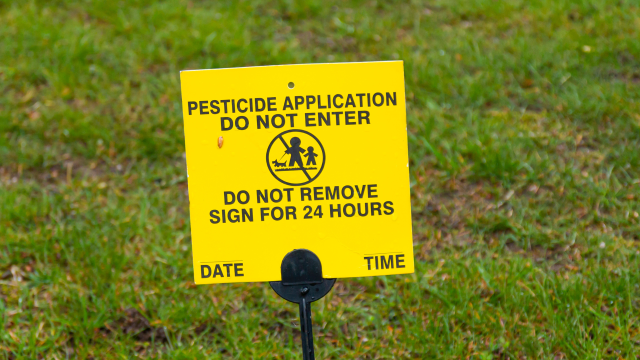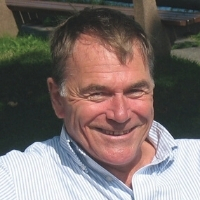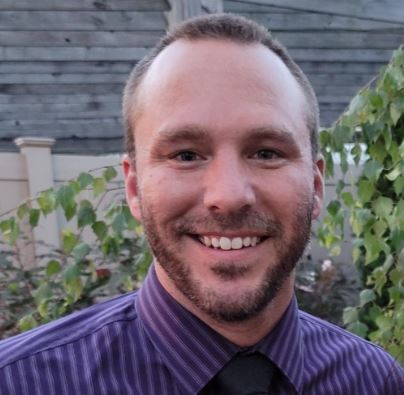17
Nov
Hear From the Grassroots at the Third Session of National Forum on Transformative Community-Based Change—November 29!

Join Us on November 29, 2023 for our final session centered on grassroots action: Transformative Community-Based Change from the Ground Up: Managing Parks and Playing Fields with Organic Practices and Policies
(Beyond Pesticides, November 17, 2023) Since the beginning of this fall and our first webinar in September, the aim of the National Forum Series has been and continues to be enabling a collective strategy to address the existential health, biodiversity, and climate threats and chart a path for a livable and sustainable future. We come together to empower effective action. You are part of the solution!
Change is driven by grassroots action of local people, elected officials, and land managers. In this context, the third session of the National Forum will share model approaches to grassroots advocacy, public policy, and land management that teach and implement respect for nature and ecosystem services, such as the natural cycling of nitrogen and disease resistance—resulting in resilient plants, landscapes, parks and playing fields, and control the existential threats to health, biodiversity, and climate. The panelists in this session will focus on organic land management systems that do not utilize petrochemical pesticides and fertilizers but focus on building organic matter and biological life in the soil to nourish plants. The result—beautiful landscapes that are cost-effective to manage.
While a key piece of the local strategy is achieving the public awareness that activates community members and decision makers to embrace the importance of ecosystems that support life, this session will focus on the “how-to” practical steps that have worked in dozens of communities across the country. The approach utilizes certified organic practices and materials defined in federal organic law, with a systems soil-building approach that enhances biodiversity. Panelists will explain the practical steps for maintaining parks and playing fields without toxic chemicals. Their work has become a model for communities nationally and worldwide.
While the focus is on what municipalities (towns, cities, counties) and states can do since they are the largest landowners in their jurisdiction, the discussion can be applied to residents and homeowners who are managing lawns and gardens. The approaches to be discussed in this session define meaningful change based on the need for urgency to empower action with science, protect community health, local biodiversity, and ecosystems, and end disproportionate harm to people of color who, in many communities, are landscapers handling highly toxic pesticides. The strategies to be discussed result in positive effects well beyond the community’s or state’s border, as healthy soil life with organic practices that reject toxic petrochemical pesticides and fertilizers draws down and sequesters atmospheric carbon (mitigating the climate emergency). In addition, as we reduce demand for hazardous products, chemical manufacturing facilities that pollute fence line communities nearby are replaced with clean product production.
What is happening at the grassroots is transformative in eliminating our dependency on toxic substances and adopting practices that improve public health and environmental quality. This is no longer viewed as a niche approach to land management, but a necessity in the face of studies showing that we are threatening, beyond planetary boundaries, the ecosystems on which life depends. The panelists are a testament to the fact that transformative change is possible and practical and that as we advance reform, it is no longer adequate to tinker with failed, undefined, “sustainable” or “regenerative” strategies. Rather we can eliminate the use of toxic materials starting from the ground up. This is done with methods that eliminate expensive petrochemical chemical pesticides and fertilizers with practices and materials that support natural soil biology that maintains ecological balance, cycles nutrients, and reduces water use, resulting in long-term cost savings. As more and more communities make the transition to organic land management and eliminate the release of greenhouse gases (carbon dioxide and nitrous oxide) into the environment, our collective efforts will significantly mitigate the impact and cost of climate disasters, from flooding to fires. It should also be noted that costly synthetic turf playing fields, which are often touted as an environmentally friendly alternative, are reliant on polluting plastic (can contain perfluoroalkyl and polyfluoroalkyl substances-PFAS) and toxic pesticides for bacteria, mold, and fungus, create contaminated water runoff, and cover over the natural environment, which is critical to preserving health and biodiversity, and averting climate disasters.
As a strategy and through this session, we are advancing common sense solutions with grassroots advocacy, armed with science, and practical management methods. In collaboration with community leaders, decision makers, and land managers, this session will help to move us forward.
This session is for all who want beautiful landscapes, parks, and playing fields without the reliance on petrochemical pesticides and fertilizers. The subject matter is cross-cutting and will inform people concerned about their health and community health, elected officials (from town, city, county, regional, state to school boards) interested in effecting movement away from toxic chemical reliance, and land managers and landscapers who work in parks and on playing fields and other landscapes.
Speakers
 Chip Osborne, founder and president, Osborne Organics, Cape Neddick, Maine. Mr. Osborne is a nationally renowned organic turfgrass expert and a professional horticulturist with 40 years experience, including 20 years in greenhouse production as the former owner and operator of Osborne Florist and Greenhouse in Marblehead, Massachusetts. As founder and president of Osborne Organics, he has over 20 years of experience in creating safe, sustainable, and healthy athletic fields and landscapes that are managed cost-effectively. Mr. Osborne has worked with municipalities, assisting in the development and management oversight and consultant for organically managed sports fields and parks in communities, school districts, and universities across the U.S. He has pioneered organic land management programs that both evaluate soil biology (the soil food web) and design strategies for building soil microbial life, which is critical to working with nature to break down organic matter as a natural food source for plants. His analysis and recommendations advise park managers in maintaining turf and landscapes without petrochemical pesticides and fertilizers. As a part of his work, he evaluates compost for beneficial organisms to determine its value in a management program and measures the ability of the soil in his projects to sequester atmospheric carbon. He has served in elective office as the chair of Marblehead’s Recreation and Parks Commission for 20 years. As a wholesale and retail nurseryman, he has first-hand experience with the pesticides routinely used in the landscape industry. Personal experience led him to believe there must be a safer way to grow plants. His personal investigation, study of conventional and organic soil science practices, and hands-on experimentation led him to become one of the country’s leading experts on growing organic turf. Chip is a Beyond Pesticides board member.
Chip Osborne, founder and president, Osborne Organics, Cape Neddick, Maine. Mr. Osborne is a nationally renowned organic turfgrass expert and a professional horticulturist with 40 years experience, including 20 years in greenhouse production as the former owner and operator of Osborne Florist and Greenhouse in Marblehead, Massachusetts. As founder and president of Osborne Organics, he has over 20 years of experience in creating safe, sustainable, and healthy athletic fields and landscapes that are managed cost-effectively. Mr. Osborne has worked with municipalities, assisting in the development and management oversight and consultant for organically managed sports fields and parks in communities, school districts, and universities across the U.S. He has pioneered organic land management programs that both evaluate soil biology (the soil food web) and design strategies for building soil microbial life, which is critical to working with nature to break down organic matter as a natural food source for plants. His analysis and recommendations advise park managers in maintaining turf and landscapes without petrochemical pesticides and fertilizers. As a part of his work, he evaluates compost for beneficial organisms to determine its value in a management program and measures the ability of the soil in his projects to sequester atmospheric carbon. He has served in elective office as the chair of Marblehead’s Recreation and Parks Commission for 20 years. As a wholesale and retail nurseryman, he has first-hand experience with the pesticides routinely used in the landscape industry. Personal experience led him to believe there must be a safer way to grow plants. His personal investigation, study of conventional and organic soil science practices, and hands-on experimentation led him to become one of the country’s leading experts on growing organic turf. Chip is a Beyond Pesticides board member.
Avery Kamila , co-founder, Portland Protectors, Portland, Maine. Ms. Kamila founded Portland Protectors to bring together Maine citizens to end the use and sale of synthetic lawncare pesticides and fertilizers in the coastal city. Portland Protectors says, “We strive to protect our kids, pets, bees, soil, and Casco Bay from these toxic chemicals, as they drift around neighborhoods and leach into the public water systems.” In 2018, the city of Portland passed an ordinance that, over five years, phased in restrictions “to safeguard the health, safety, and welfare of the residents of the City and to conserve and protect the City’s waterways and natural resources by curtailing the use of pesticides and fertilizers for turf, landscape and outdoor pest management.” The ordinance establishes organic land care methods as the primary means to care for and maintain public and private property in Portland, including lawns, gardens, athletic fields, parks, and playgrounds. Ms. Kamila was appointed to the city’s Landcare Management Advisory Committee, created by the City Council in the ordinance. As a result of its passage, Portland posts the following on its website: “Using synthetic pesticides and fertilizers harms pollinators and native species. These products cause excess chemicals to run off into our waterways, worsening water quality, increasing ocean acidification, creating algae blooms, and damaging marine life–which also impacts local fisheries and marine businesses. Plus, pesticides and fertilizers have proven negative effects on our families. Children are especially vulnerable to chemical exposure from lawn products when they play outside. Pesticides and herbicides are also linked to cancer in dogs. By switching to organic lawn and landscape care, we can ensure the health of our community and make our environment more resilient to climate impacts.”
, co-founder, Portland Protectors, Portland, Maine. Ms. Kamila founded Portland Protectors to bring together Maine citizens to end the use and sale of synthetic lawncare pesticides and fertilizers in the coastal city. Portland Protectors says, “We strive to protect our kids, pets, bees, soil, and Casco Bay from these toxic chemicals, as they drift around neighborhoods and leach into the public water systems.” In 2018, the city of Portland passed an ordinance that, over five years, phased in restrictions “to safeguard the health, safety, and welfare of the residents of the City and to conserve and protect the City’s waterways and natural resources by curtailing the use of pesticides and fertilizers for turf, landscape and outdoor pest management.” The ordinance establishes organic land care methods as the primary means to care for and maintain public and private property in Portland, including lawns, gardens, athletic fields, parks, and playgrounds. Ms. Kamila was appointed to the city’s Landcare Management Advisory Committee, created by the City Council in the ordinance. As a result of its passage, Portland posts the following on its website: “Using synthetic pesticides and fertilizers harms pollinators and native species. These products cause excess chemicals to run off into our waterways, worsening water quality, increasing ocean acidification, creating algae blooms, and damaging marine life–which also impacts local fisheries and marine businesses. Plus, pesticides and fertilizers have proven negative effects on our families. Children are especially vulnerable to chemical exposure from lawn products when they play outside. Pesticides and herbicides are also linked to cancer in dogs. By switching to organic lawn and landscape care, we can ensure the health of our community and make our environment more resilient to climate impacts.”
 Ben Gratton, parks supervisor, Parks, Open Space, and Trails Department, Longmont Colorado. A Colorado native and Colorado State University graduate, Mr. Gratton has been maintaining and transforming municipal landscapes across the Front Range for nearly 15 years. Using his degree in Landscape Horticulture, his work as a parks supervisor has helped the City of Longmont’s more than 600 acres become more sustainable with organic maintenance, turfgrass conversions, pollinator gardens, and reimagining traditional landscapes. Mr. Gratton has been managing pilot sites in Longmont, Colorado, as a part of Beyond Pesticides’ Parks for a Sustainable Future program. Of the program in Longmont, Mr. Gratton told the Longmont Leader, “Instead of using pesticides, Longmont, “selects turfgrass with more aggressive rhizomes — underground stems — to outcompete weed seeds, engages in more frequent core aeration and in overseeding to decrease weed pressure dramatically,” The city views the organic land management program as part of its overall sustainability efforts to reduce water use, protect air quality, and enhance its ecosystem.
Ben Gratton, parks supervisor, Parks, Open Space, and Trails Department, Longmont Colorado. A Colorado native and Colorado State University graduate, Mr. Gratton has been maintaining and transforming municipal landscapes across the Front Range for nearly 15 years. Using his degree in Landscape Horticulture, his work as a parks supervisor has helped the City of Longmont’s more than 600 acres become more sustainable with organic maintenance, turfgrass conversions, pollinator gardens, and reimagining traditional landscapes. Mr. Gratton has been managing pilot sites in Longmont, Colorado, as a part of Beyond Pesticides’ Parks for a Sustainable Future program. Of the program in Longmont, Mr. Gratton told the Longmont Leader, “Instead of using pesticides, Longmont, “selects turfgrass with more aggressive rhizomes — underground stems — to outcompete weed seeds, engages in more frequent core aeration and in overseeding to decrease weed pressure dramatically,” The city views the organic land management program as part of its overall sustainability efforts to reduce water use, protect air quality, and enhance its ecosystem.
All unattributed positions and opinions in this piece are those of Beyond Pesticides.










